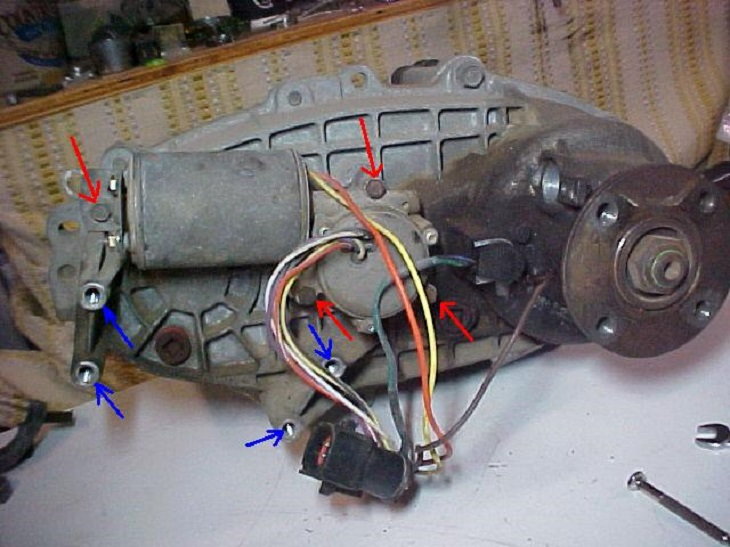When it comes to understanding the intricacies of your Ford F150’s transfer case shift motor wiring system, having a comprehensive diagram can make all the difference. In this article, we will delve into the world of Ford F150 Transfer Case Shift Motor Wiring Diagrams to help you navigate and troubleshoot your vehicle’s electrical system effectively.
Why Ford F150 Transfer Case Shift Motor Wiring Diagrams are Essential
Transfer case shift motor wiring diagrams are essential for several reasons:
- They provide a visual representation of the wiring connections in your vehicle, making it easier to understand how the various components are interconnected.
- They help in diagnosing and troubleshooting electrical issues by allowing you to trace the path of the current flow.
- They serve as a reference guide for proper installation and maintenance of the transfer case shift motor wiring system.
How to Read and Interpret Ford F150 Transfer Case Shift Motor Wiring Diagrams Effectively
Reading and interpreting Ford F150 Transfer Case Shift Motor Wiring Diagrams may seem daunting at first, but with a few key tips, you can easily decipher the information:
- Start by understanding the symbols and abbreviations used in the diagram.
- Identify the components and their corresponding wiring connections.
- Follow the flow of the current through the diagram to trace any potential issues.
Using Ford F150 Transfer Case Shift Motor Wiring Diagrams for Troubleshooting Electrical Problems
Transfer case shift motor wiring diagrams are invaluable tools for troubleshooting electrical problems in your Ford F150:
- Use the diagram to identify potential faulty connections or components that may be causing the issue.
- Check for continuity and proper voltage levels at key points in the wiring system as indicated in the diagram.
- Refer to the diagram to ensure correct installation and alignment of the wiring components.
Importance of Safety When Working with Electrical Systems
When working with electrical systems and using wiring diagrams, safety should always be a top priority:
- Disconnect the battery before working on any electrical components to prevent the risk of electric shock.
- Use insulated tools to avoid accidental contact with live wires.
- Follow proper safety protocols and guidelines when handling electrical systems to prevent injury or damage to your vehicle.
Ford F150 Transfer Case Shift Motor Wiring Diagram
Ford F150 F250 How to Replace Transfer Case Motor – Ford-Trucks

How To Replace 4×4 Transfer Case Shift Motor 2004-08 Ford F150 | 1A Auto

ford f150 transfer case shift motor wiring diagram

Ford F150 Transfer Case Shift Motor Wiring Diagram | Wiring Expert Group

[DIAGRAM] 1992 Ford F150 Transfer Case Diagram – MYDIAGRAM.ONLINE
![Ford F150 Transfer Case Shift Motor Wiring Diagram [DIAGRAM] 1992 Ford F150 Transfer Case Diagram - MYDIAGRAM.ONLINE](http://repairguide.autozone.com/znetrgs/repair_guide_content/en_us/images/0900c152/80/07/82/41/large/0900c15280078241.gif)
Ford Tech Helps Owners Through Transfer Case Shift Motor Replacement
